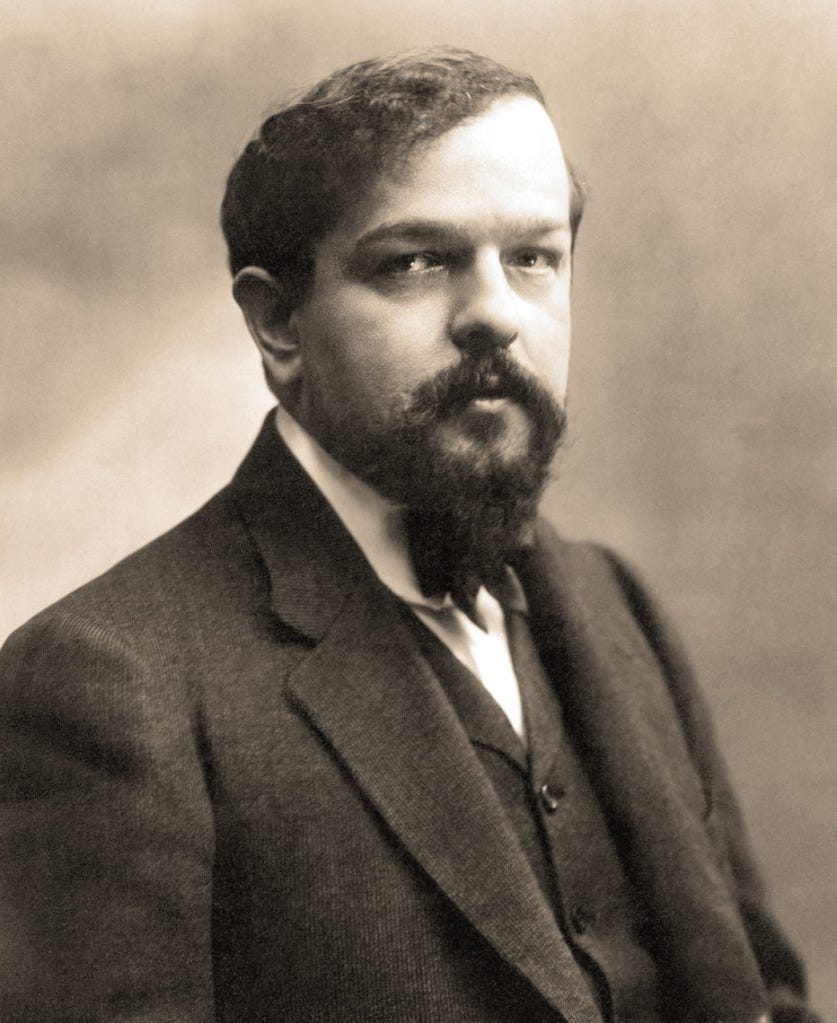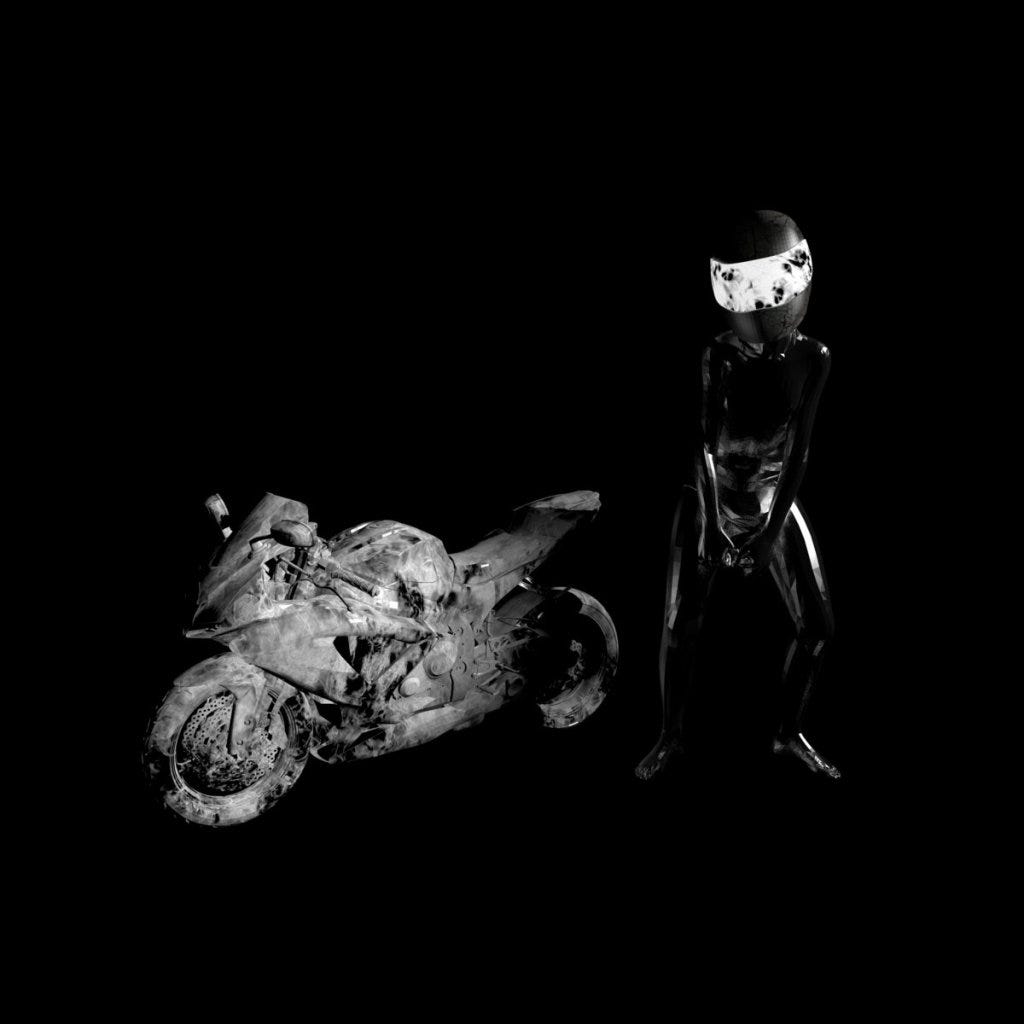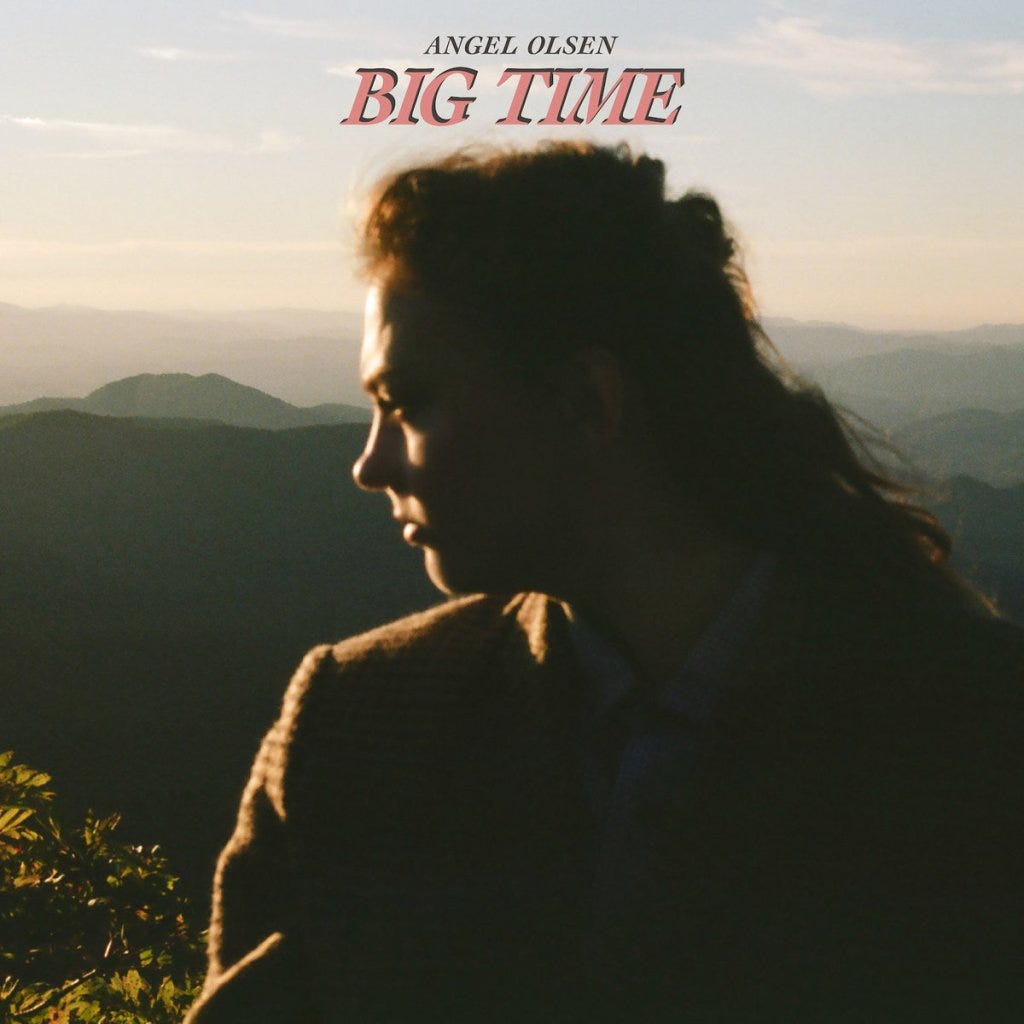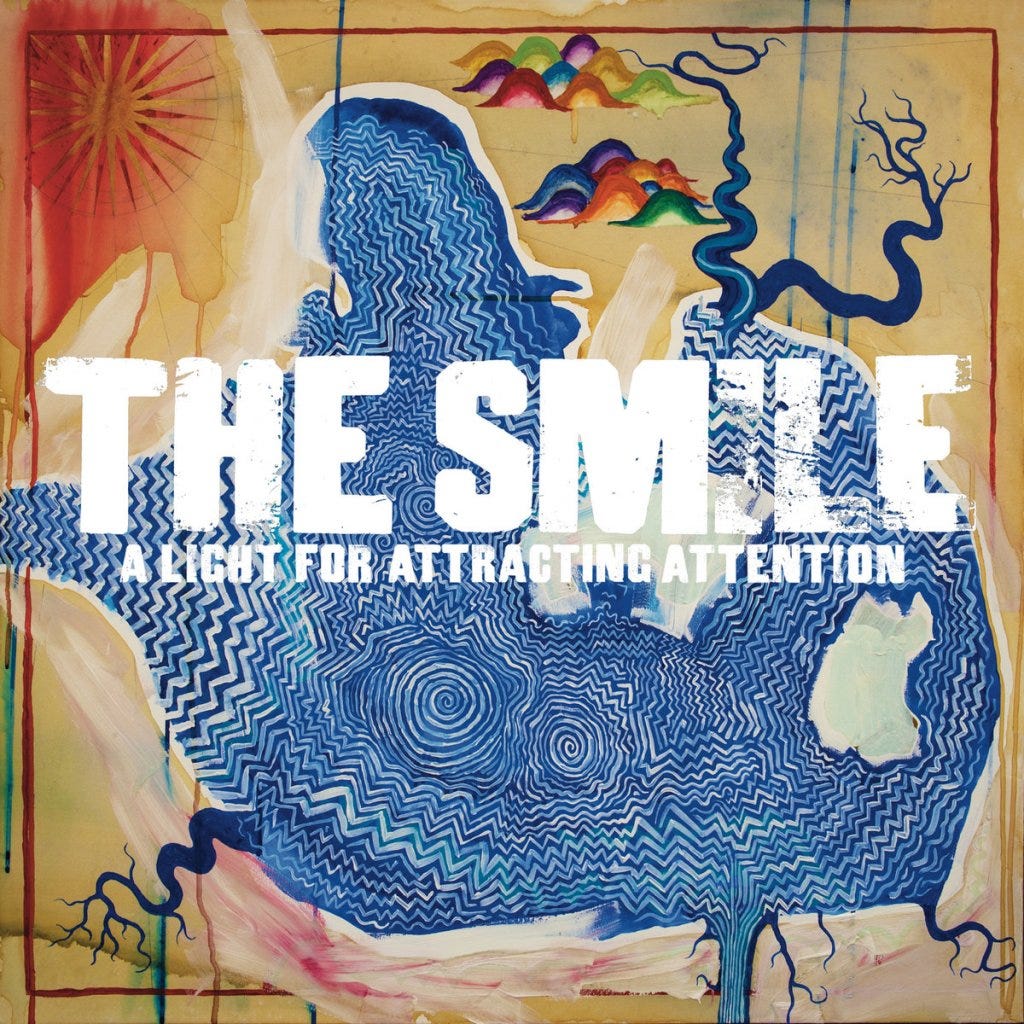2022 OG-STYLE, PT 3: MARC GOES FROM DEBUSSY TO THE BETHS
Before I dive in, a brief explanatory preamble is in order: this list does not purport to describe “the best” albums of the year, or even the best albums I listened to this year. This list contains what I happily discovered, and rediscovered, this year.
A couple more things: I’ve always approached music first and foremost as an instrumentalist; I focus on music not words. I will forgive the most insipid lyrics if they are laid over a killer riff. But even the cleverest songwriter does nothing for me if I don’t like the music. These preferences have grown stronger over the past couple of years as the disappearance of my commute, and general lack of time behind the wheel, have all but eliminated deeply focused listening from my activities. So my focus is generally on music, not lyrics, and that’s reflected in the list below. Also, I’m an album guy; I couldn’t even tell you the names of some of the songs I’ve liked most this year. What can I say, I’m an idiosyncratic listener?
Finally, this was a shitty year personally, so I’m only giving it nine entries instead of the customary round number.
With all that said, and before I get to my 9 discoveries, a few albums deserve honorable mentions:
Black Thought/Danger Mouse, Cheat Codes: Every bit as good as people say. It’s so nice to see Black Thought get his due. The problem here—the reasons this didn’t make my core list—is me, not them: I just don’t have the attention to dedicate to the dense verbal thickets and complex mixes these guys create.
Built to Spill, When the Wind Forgets Your Name: It’s a far cry from There’s Nothing Wrong With Love, Perfect From Now On, or the two that followed those, but this is a really solid album from one of my favorite still-active bands.
Plains, I Walked With You A Ways: This album is highly, frustratingly uneven, including possibly my favorite song of the year (“Abilene”) but also several songs that grate on me to no end (I have a real problem with “Problem With It”).
Yard Act, The Overload: I know, I know—they’re annoying and derivative, but they’re very good at what they do, and somehow this album works for me
The Beths, Expert in a Dying Field -- This is just such well-crafted indie rock. “Future Me Hates Me” was one of the catchiest songs of 2018, and here again, The Beths combine great melodic hooks to fine lyrics about relationships. Also, while I know the titular “dying field” is metaphorical, as a former academic musicologist, I can’t help but feel like the title track—which is one of my favorite songs of the year on the strength of the chorus alone—is aimed directly at me. I don't ultimately have a lot to say about this album, other than to commend it to any readers who appreciate a well worked pop song.
Blur, Passim -- Hey, you know who’s a good band? Blur. I’m going to go out on a limb and say they just might go places . . . Wait, what’s that you say? 1992 called, and it wants its pop criticism (as well as its joke structure) back? Despite—actually, maybe at least in part because of—the ubiquitous “Song 2,” I somehow completely missed Blur during their heyday. Their best work hit while I was attending a small college in the middle of nowhere in the era right before the Internet became a place to learn about current music (but not before the college had to shut down an internal message board that quickly deteriorated from a putative advice-crowd-sourcing forum to the type of malicio/us sewer that any sentient being in the developed world in 2022 would recognize and hate). Anyway, at the time, I mostly learned about new acts from my friends and don’t recall any of my friends liking Blur. Also, for some reason—maybe an MTV ad?—I always associated Blur with Blink 182, Matchbox 20, and similar whiny shitty generic bands. So for me, Damon Albarn was notable primarily for Deltron 3030 (easily one of my favorite rap albums of all time) and Gorillaz.
I’m a sucker for guitar-forward rock with anthemic, singable choruses and lots of snotty attitude. Come at me.
But a few months back I heard “Country House,” and promptly proceeded down a Blur rabbit hole, and there is no turning back. Now look, they’re still not my favorite band, but Parklife fully lives up to its reputation, and I am completely hooked on The Great Escape. What can I say? I’m a sucker for guitar-forward rock with anthemic, singable choruses and lots of snotty attitude. Come at me. And while you’re at it, you may want to check out this next guy, I have a feeling he’s going to blow up . . .
Claude Debussy, Passim -- This one might be cheating a bit. I first “discovered” Debussy’s music in high school, via Toscanini and the NBC Symphony’s recording of La Mer. It was a revelation. Over the years, though, I moved away from such gauzy romanticism and gravitated more towards “cultivated” (a term I prefer to “classical” for reasons I’m happy to discuss over a beer) music that was either slightly earlier and more rigorously structured (e.g., Brahms and his Germanic forebears) or later and more radical (e.g, Ives and his more experimental successors). But for some reason, I recently decided to revisit Debussy, and here’s the thing—Debussy is the bridge between those different schools (as well as, on some level, between eastern and western musics, among other major achievements).
His works are generally tonal, but the tonality is decentered. His timbres shimmer and shine, never as brilliantly as his rival Ravel’s (say that five times fast!), but in ways that can still bring my heart to my throat.
This is not some novel insight, to be sure; Debussy would be on many, if not most, musicologists’ shortlists of composers who effected the transition from Romanticism to Modernism. He just does it so elegantly. His works are generally tonal, but the tonality is decentered. His timbres shimmer and shine, never as brilliantly as his rival Ravel’s (say that five times fast!), but in ways that can still bring my heart to my throat. And there are subtle rhythmic complexities here, but they never overwhelm the basic pulse, they just make it more interesting. If you’re looking for entry points, here are a few suggestions:
Orchestral music: La Mer and Prelude a l’apres midi d’un Faune are both magical
Chamber music: The Preludes for piano show astonishing range, and his String Quartet is great
Opera: He only wrote one: Pelleas et Melisande. It’s awesome.
Jockstrap, I Love You Jennifer B -- Jockstrap are not my usual cup of tea. This album is soft-experimental and dance-y at times. Also, I learned about it through others’ year-end lists, so it goes against my natural, deeply immature contrarianism to co-sign. Here’s the thing—it’s actually a really good album. There are a couple of moments of pointless sonic experimentalism, but overall it’s a highly cohesive album, both lyrically and musically, and there are moments of true beauty. The string arrangement on “What’s It All About” is really lovely and enriches a sweet song that might otherwise feel somewhat pedestrian. “Concrete Over Water” intertwines old-school games with tape playback, a spare backing track that calls back to—but is not—church organ, and a soaring vocal melody that somehow evolves into a march featuring woozy distorted strings before dissolving back to that not-organ and vocal line, then repeating the cycle with minor variations. It’s gorgeous, so much more than the sum of its parts. You can trace the influences, from Portishead (“Neon”) to Stereolab (“Greatest Hits”), but the album never sounds derivative. Possibly the highest compliment I can pay a new act: I’m excited to see what they do next. I have only two major criticisms: 1) I find the last track (“50/50 (Extended Mix)”) virtually unlistenable, somehow both boring and annoying; and 2) the whole thing could use more flint. Brad knows what I mean.
MJ Lenderman, Boat Songs -- I know I said I don’t focus much on lyrics, and that’s true. But when the songwriting is as sharp and funny as it is on this album, I can’t avoid it. Yes, the music is also very good, and it really pops live; I feel like the pedal steel is a bit buried in the mix on the album, which doesn’t do full justice to the material. Still, “You Can Build Yourself a Boat” has ear-wormy qualities, and there’s plenty of singalong-worthy material. What most sticks out, though, is MJ Lenderman’s songwriting voice—it’s wry, and wise, but also (yes, I know I said this already) very, very funny. And he has a light touch. “Tastes Just Like It Costs” is socially aware without being obnoxious about it. “Hangover Game” re-imagines a legendary Michael Jordan performance in non-obvious ways. And “Dan Marino”—well, I’m not sure what it’s fundamentally about, but I love it. Lenderman sets scenes and tells stories, and he does it without verbal pyrotechnics. He’s not a show-off, he’s just an absurdly talented songwriter and musician, and his album is a model of alt-country/Americana craft.
Angel Olsen, Big Time -- I’ve listened to Angel Olsen for a while. I’ve always considered her something like a B-plus artist: powerful singer (see her collaboration w Hamilton Leithauser a few years back) who can generate the occasional brilliant song (e.g., “Shut Up Kiss Me”) but can’t really sustain it. I am delighted to be proven wrong by this album, though considering the personal loss that apparently animated it, I won’t mind if she never reaches these heights again—she deserves to be happier than she apparently needs to be to make great art. Anyway, I love the old-school sonic palette. Schmaltzy strings! Organ! Lots of reverb! It’s glorious. I think ramping down the “alt” and increasing the “country” allows Olsen room to shine as a singer. The title track aches, as does “Ghost On.” Both of them teeter on the edge of bathos, but land on the right side. It’s a tightrope act, and really fun to see her stick the landing.
I love the old-school sonic palette. Schmaltzy strings! Organ! Lots of reverb! It’s glorious. I think ramping down the “alt” and increasing the “country” allows Olsen room to shine as a singer.
Porridge Radio, Waterslide, Diving Board, Ladder to the Sky -- Whoa. This album is a gut punch, in the best possible way. “Emo” is a loaded term, and justifiably so, given its association with some of the worst music produced in my lifetime. So I won’t call this album “emo.” But if you strip away the genre associations and squint just a bit, you could see, in the soul-baring lyrics, raw vocal approach, and grand rock arrangements on Waterslide, the best of what emo could have been in an alternative universe. This music refuses to stay in the background, and I wouldn’t recommend it for everyone. Like Angel Olsen (although in very different ways), Porridge Radio aren’t scared of seeming overwrought. Their feelings matter, dammit! And like her, they pull it off; they have the musical chops to back their emotional conviction. So if you are up for an emotionally demanding, sonically rewarding experience, and you like classic indie rock sounds, give this one a try.
Sault, Angel (honorable mention to 11) -- In 2020, Sault produced probably my two favorite albums of the year. In 2022, they released an absurd number—five? Six? More?—of albums, but none of them, to my mind, is nearly as great as either Untitled release, even though you could probably scrape together two brilliant albums’ worth of material between them. So, yes, Sault need to work on editing. But when you are as talented and audacious as this crew; when the myth-making inherent in a secretive musical collective is so core to your being; when your most successful album to date revisited and updated a broad swath of modern Black music history, from worksongs to dancehall, to perfectly capture a prevailing mood of massive racial unrest without knuckling under; then you deserve the benefit of the doubt. Sault has more than earned that benefit, and it’s frankly a little uncharitable of me to complain about the messiness of the overall project. All that said, my favorite thing they released this year was the roughly 10-minute-long Angel, which distills so much of what I love about them into a single, epic track filled with stylistic callbacks in service of a message that feels at once powerful and inscrutable, just out of reach.
The Smile, A Light For Attracting Attention -- How is this album so good? I’m a nerdy, middle-aged white Rockist, so my Radiohead credentials are impeccable. But A Moon-Shaped Pool made almost no impression on me, and I had pretty much resigned myself to the idea that the best case scenario for my relationship with Thom Yorke and Johnny Greenwood would be a nostalgia-fest tour some time in the near future. And then I heard “You Will Never Work In Television Again.” What a fucking banger. And then I watched their streaming show, and loved “The Smoke,” among other songs. So maybe there was more to look forward to after all.
Sure enough, this album marries the snarling energy of The Bends to the dance and electronica influences of Kid A and Eraser, and somehow pulls it off. There is an understated funk to many of the songs (again, “The Smoke” come to mind), and many others, like “Sorting on the Surface,” recapture some of the dark, ambient beauty that made Amnesiac perhaps my favorite Radiohead album. If I never get to see Radiohead again, I’ll be a bit sad—they were a stupendous rock band back in the day—but based on this album, and on the new songs they played when I recently saw them, The Smile may yet come reasonably close to filling the Radiohead-shaped hole in current music.











